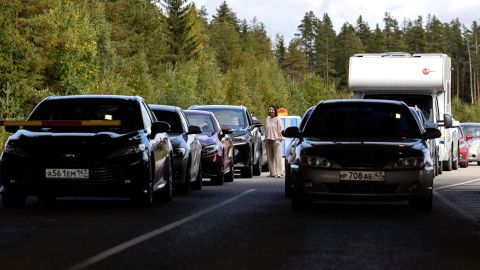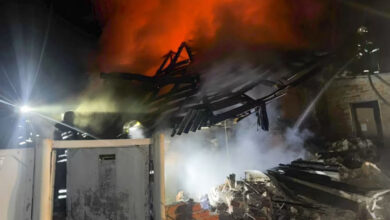Tension was in the air as a long trail of cars lined up near the Petkuhovo checkpoint on the border between Russia and Kazakhstan late Friday night.
Andrei Alekseev, a 27-year-old engineer from the city of Yekaterinburg, was among many men in the queue who were fleeing Russia in the wake of President Vladimir Putin’s mobilization orders.
Cars had to go through Russian and Kazakh border checks, both of which lasted about two hours.
Alekseev woke up to the news of Putin’s mobilization order on Wednesday morning and he knew he had to flee Russia. He met up with his friends that night to discuss their next steps and decided to avoid taking any risks and to leave Russia with no plan in mind.
On Saturday, Putin signed the law on military service, setting a jail term of up to 10 years for evading military duty due to mobilization, and up to 15 years in prison for wartime desertion.

The legal amendments also introduce concepts of “mobilization, martial law and wartime” to the Russian Criminal Code. Putin also signed a decree granting university students a deferment from mobilization.
“At the border, all the men were asked whether they served in the army and what is their military service category,” Alekseev told CNN.
“I felt that the border guards were very understanding, however, I had friends who crossed the border to Kazakhstan at a different checkpoint and they were met with grueling questions, it took them seven hours to cross,” he told CNN.




